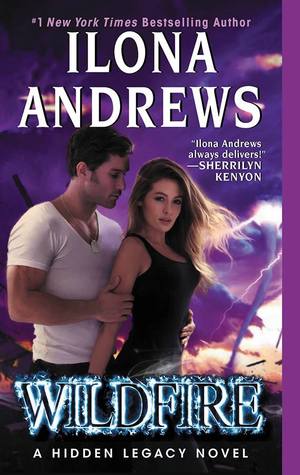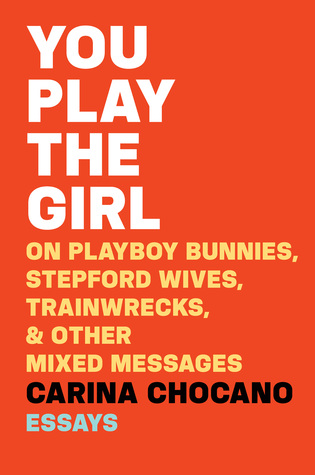I read this book for the
Unapologetic Romance Readers' New Years 2017 Reading Challenge. For more info about what this is,
click here.
Native American romances were super popular in the 80s for some reason, and up until *peers at shelves*
last year, I had never read one before... which is
partially the reason behind why I "tricked" my entire romance reading group into reading the Native American bodice ripper,
SAVAGE ECSTASY. The title ought to clue you into how this little gem rates on the PC scale.
I got CHEYENNE CAPTIVE when it was free for Kindle. The reviews on Goodreads were mostly positive. "Why not?" I figured. As one of my friends pointed out on my status updates, at least the word "savage" was nowhere to be found in the title. That, at least, should have been a good sign. Right? ...right?!
Let me show you the
literal first line of the book:
Summer Priscilla Van Schuyler had never given a thought to the possibility of being raped and murdered by a band of renegade-Indians (1%).
I see your ha and raise you a ha-ha-ha-ha-ha. Ha.
CHEYENNE CAPTIVE is one of the worst romances I have had the pleasure of reading in a while. It is the type of book people who don't read romance novels use to make fun of the romance novel genre as a whole because this book (or one like it) is the one they flipped through out of curiosity
that one time as a child when they found the book sitting on their mother's coffee table. It is so terrible that it is almost good because it takes irony to the very heights of soaring ecstasy.
***WARNING: MAJOR SPOILERS TO FOLLOW***
The plot is simple. Summer "Do you
know who I am?" Schuyler is the daughter of a rich man who ends up being taken captive by Native Americans. The one who catches her, Angry Wolf, taunts her with rape, followed by gang-bangs and then fire torture, when one of his tribesmen shows up and quickly puts a stop to that. Her savior is Iron Knife, one of those cringe-worthy "half-breeds," who is portrayed as being superior to the other NAs simply because he's half-white.
Iron Knife does not rape Summer, but he does end up taking her as a slave, and she lives in his cabin and looks pretty and sad and sickly, because she has an infected wound on her arm that he must heal. She ends up going into a fever from it, and when she awakes, suddenly Iron Knife is the greatest and the two of them go from being captor and captive to I love you pookykins, no, I love
you, pookykins rather sickeningly quickly as the reader is treated to a medley of sex scenes like these:
"Little One, I am built very big! You are a virgin-"
"I'm YOUR virgin!" she breathed against his lips.
"But I have promised you will never be hurt again!" he protested.
"Hurt me!" she begged as she kissed him deeply. "Hurt me as I want to be hurt!" (15%)
And then her need was so great she could think of nothing else but plunging her tongue deep in his sucking mouth, grinding her body down on the pulsating dagger that impaled her womanhood (23%).
She felt him forcing her thighs even further apart and she forgot about everything but the sensation of the blade of his warm tongue sliding home in her scabbard (33%).
She felt as though she were impaled on a hot, fiery sword (59%).
She surrendered to her ecstasy and began a dream ride at dizzying speed across Ekutsihimmiyo, the Milky Way. Nothing could be better than this peak of passion they were approaching together (96%).
It is
tedious and repetitive. Most of the 80s romances I've read don't have explicit sex scenes. Georgina Gentry says tah-tah to that, and the hero and heroine engage in all sorts of "risque" behavior like oral sex (he reciprocates, she's a blow-job goddess); role-play (that is literally where the title comes in; he is the "master" and she is his "Cheyenne captive"); and cowgirl ("Ride your stallion!" the hero cries at one point; plot-twist, he's not talking about his horse).
The saving grace of this book is the scheming bad guys. Angry Wolf was pretty stock, as far as bad guys go, and was dispensed with quickly without a whole lot of development (although he does threaten to rape the heroine and then cover her with honey so she'll be eaten by fire ants). The real stars of the show were Jake Dallinger and Gray Dove.
I just read this great bodice ripper by Amanda York/Joan Dial called
BELOVED ENEMY and it also featured a real lame-o heroine, who was made even more lame in comparison when compared with the amazingly beautiful and cunning other woman, Indigo. (I think it's also interesting that both OWs are women of color and very much in tune with their sexuality, as opposed to their virginal blonde opposites.) That's how I felt about Gray Dove.
Gray Dove is from a neighboring tribe called the Arapho and she is
brutal. She sacrificed her baby brother and tortured her mom at the behest of their murderers, because she was desperate to survive, and
then lets them rape her to stall for time before killing them. When she gets pregnant, she gives herself an abortion with a "rusty wire" (*cries*) & sleeps with the husband of the woman who took her in, only to leave them both by destroying all their belongings as she leaves on a rolling carpet of give-no-f*cks. She then betrays her own people and starts a war that results in many of them getting disfigured or killed - all to get back at Summer and keep Iron Wolf to herself. She sells Summer out to Angry Wolf, prostitutes herself - literally and figuratively - without a thought, and ends the book as the madam of a profitable whore-house by rebranding herself as fallen Spanish nobility.
Jake is even more messed up. He's actually tied with Iron Knife, because he had a thing for Iron Knife's white mother, Texanna. When she came back to her village a fallen woman with two mixed-race children, he tried to first proposition her and then rape her. He's the reason that Iron Knife had whip scars, because Jake's prostitute of choice slept with Iron Knife when he was like fourteen, then accused him of rape, and Jake killed her in his anger and then pinned the murder on Iron Knife.
He has some of the best lines in this book:
Yes, he would have her at least once and then she'd change her mind once he'd put a baby in her belly and take him as her protector. That was how his pa had gotten his mama. Next year, that could be Jake's baby in that cradle, his son sharing those full, swollen breasts with his daddy (62%).
"Missy," he whispered. "You just barely missed gettin' ole Jake's big rod rammed right down your little musket barrel" (62%).
"Hell, if you had as many pricks stickin' out of you as have been stuck in you, you'd look like a west Texas cactus" (82%).
There's so much more wtfery I could share, like the cat-fight, the whip fight, the gelding scene, the sociopathic younger sister line that goes nowhere, the tragic story of Texanna and War Bonnet, and the typos that get more and more abundant as the book goes on (as if the person reformatting it was getting so bored that they were just like, F it), including one where the
"fierce braves raced to count coupon" (48%) instead of coup - because dammit, times are tough and groceries are expensive!
Oh - and let's not forget the rapey Spanish guy who kept repeating "Comprende?" and "Si" and "hombre" like that guy in your Spanish 1 class who missed every day but exam day and thought he could bluff his way out of it. Dude was just a phrase away from saying "bad hombres."
"You got too much spirit, puta whore! El Lobo likes his women docile as sheep. You need the fight taken out of you and I'm just the hombre to do it!" (36%)
I know what you're asking yourself. Is this a bodice ripper? (Well, okay, that's probably question #2 or #3. Right now, you're probably asking yourself: WTF???) I would say that this isn't a bodice ripper because the hero is actually very kind, and all the insane stuff comes at the expensive of the many villains who surface repeatedly to threaten the heroine with rape and the hero with bodily injury. The last third of the book is much better than the first 2/3 because that's when the author randomly decides to go into Gray Dove's and Jake Dallinger's backstories, so we can see them for the incredibly awful (but surprisingly complex) people that they really are, as well as getting more insight into the tragic and doomed love story of the hero's own parents, which I thought was really well done.
I originally thought that there was no way I could give this book anything more than one star... but now that I think about it, I feel like the last act of the book turned this book from boring-bad to wtf-bad. Both are bad, but one is vastly more entertaining than the other and offers up many interesting possibilities for self-amusement and satire. Would I recommend reading this as a straight romance? No (and I am side-eying the people who gave this book high marks who seemed genuine - what book did you read? Are there alternate editions circulating in Jekyll/Hyde format?).
To quote the aforementioned "El Lobo":
"This is gonna be mucho fun" (36%).
1 to 1.5 out of 5 stars (for ironic purposes, only; actual rating: -1,000,000)




























